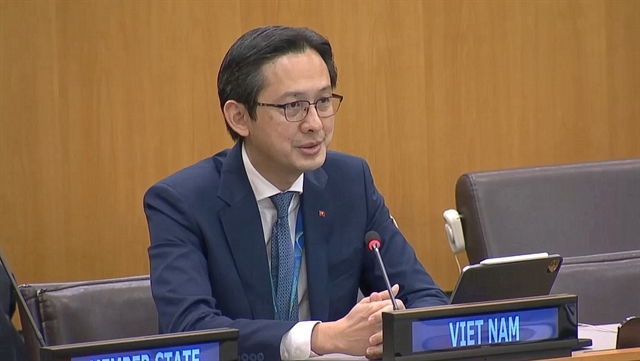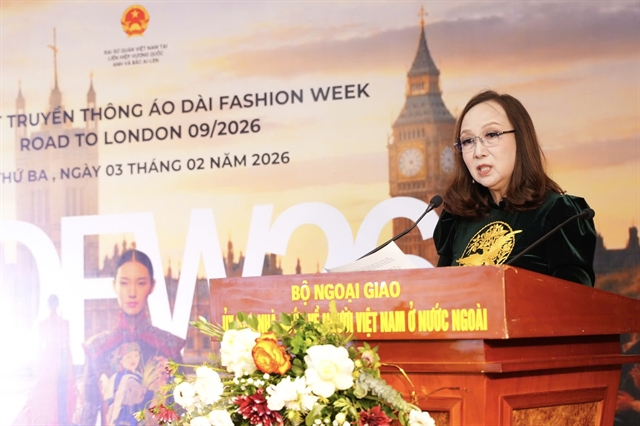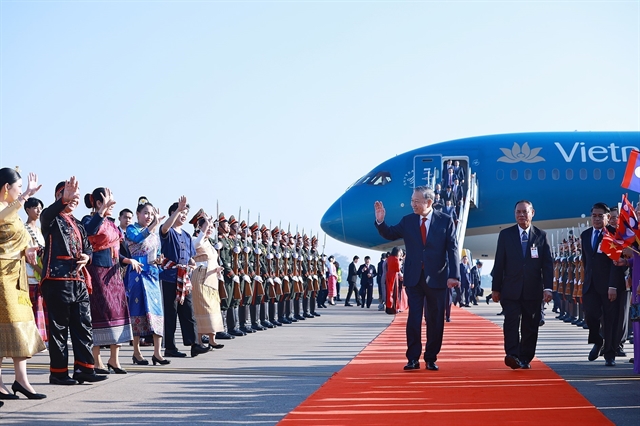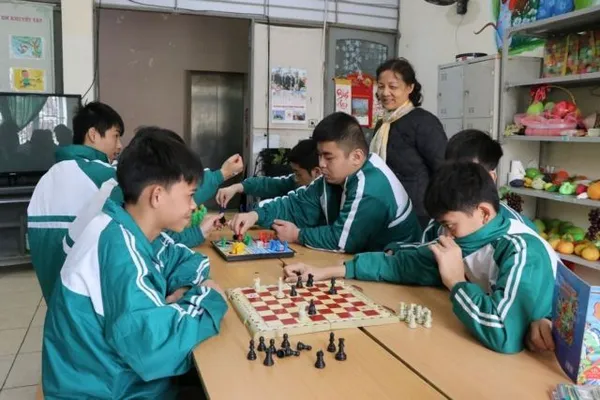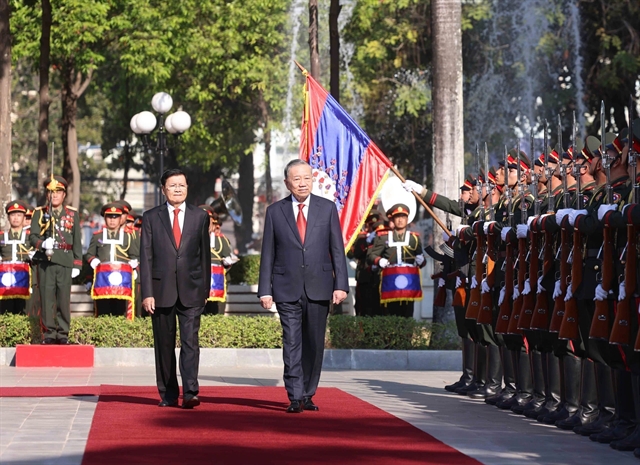

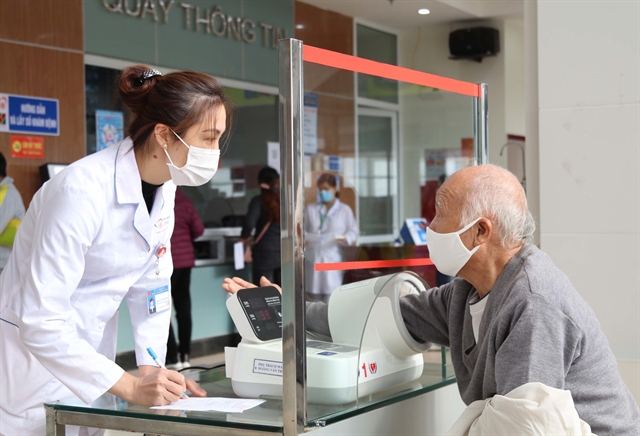 |
| A man has a health check at Lạng Sơn General Hospital. VNA/VNS Photo Quang Duy |
HÀ NỘI — Prime Minister Phạm Minh Chính chaired an online conference on public health yesterday in Hà Nội, suggesting solutions to address a number of challenges to improve the quality of health services.
The conference saw the attendance of Deputy PM Vũ Đức Đam, Standing Minister of Health Đào Hồng Lan and leaders of other agencies including the Ministry of Finance, Ministry of Justice, Ministry of Planning and Investment, Ministry of Labour, Invalids and Social Affairs, and the National Assembly's Committee of Social Affairs.
The Prime Minister hailed the health sector for its important role in the country’s fight against the COVID-19 pandemic.
“Over the past two years, it is the sacrifices of the health sector to overcome unprecedented hardships that have made an important contribution to our effective control of the COVID-19 pandemic. It has contributed to the recovery and growth of all fields,” he said.
He noted the successful vaccination strategy including the establishment of a vaccine fund, vaccine diplomacy, and the implementation of the free nationwide vaccination programme.
The PM praised the health sector for maintaining the quality of health check-ups and treatment, as well as strengthening the application of information technology and improved legal frameworks.
He noted that many plans and targets for 2022 had been met or even exceeded.
The rate of malnourishment in children under the age of 5 had been reduced to 19 per cent (against the target of 20.4 per cent). About 94 per cent of all health stations in communes have doctors. There are 10 doctors and 30.5 hospital beds per 10,000 people (exceeding the target of 9.4 and 29.5 respectively). About 10,000 out of 500,000 medical staff have recently quit their jobs in the public sector but some 5,000 have been recruited.
He also noted successes in responding to seasonal diseases including dengue fever, hand foot mouth and emerging diseases like monkeypox as well as reducing maternal and newborn deaths, especially in remote and disadvantaged areas.
The PM also pointed out the shortcomings such as unclear and complex policies and administrative procedures in procuring and bidding medicines and medical equipment.
 |
| Prime Minister Phạm Minh Chính speaks at the conference. VNA/VNS Photo |
He said the capacity of the grassroots health sector and preventive health sector was still limited and overcrowding at national-level hospitals was still a big issue.
The PM also stressed that the salary, allowances and compensations for health workers were still inadequate while pointing out the prolonged shortage of medical supplies in some hospitals.
Standing health minister Lan acknowledged limitations that need to be addressed, including the shortage of medicines, medical equipment and supplies in many health facilities; and the limited legal framework in procuring and bidding on medical supplies.
She also noted issues related to health insurance payment, privatisation, compensations for health workers and overcrowding at national-level hospitals.
She also pointed out the weak preventive health system, especially at the grassroots level; and the low spending on healthcare services per capita and the wide but unsustainable health insurance coverage.
The PM said the health sector faced a myriad of challenges including the ongoing COVID-19 pandemic and complacency of some localities, and the appearance of some diseases like dengue fever and monkeypox.
He highlighted other challenges like controlling the diseases in the context of globalisation and environmental pollution, ensuring equality in health services provision amid an increasing income gap, and meeting increasing and diverse demand for health services due to population growth.
The Prime Minister shared 11 recommendations to improve public health.
He said it was important to continue implementing the COVID-19 prevention and control programme and stay proactive and ready for all scenarios, avoiding the outbreak of COVID-19 at all costs.
He noted that the COVID-19 strategy of Việt Nam was still based on such factors as testing, treatment, vaccination, technology, and people’s awareness.
He requested the newly appointed standing Minister of Health to ensure the virtues and capabilities of health workers, putting the interest of people above any other factors.
He recommended that the health minister coordinate with other agencies to propose policies on salary, allowances and compensations to retain health workers in the public sector.
He also suggested the development of the pharmaceutical industry and the promotion of international cooperation in human resource training, as well as digital transformation. VNS

